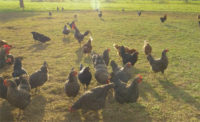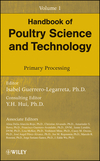Commentary | Animal Agriculture Alliance Report
Prevent activist attacks brush up on plant security

A group of animal activists are shown stealing a pig from a processing plant. This image was captured from the group’s livestream video. (Photo courtesy of Animal Agriculture Alliance)
COVID-19 isn’t the only thing I would have liked to leave behind in 2020. Animal-rights activist attacks also rise to the top of my list. Animal-rights activists never miss an opportunity to kick animal agriculture when its down, and the Coronavirus pandemic was no exception. Groups have fed on the current state of events, running rampant over the last several months.
Animal-rights groups have continually attempted to tie the pandemic to animal agriculture, taken advantage of labor shortages to attempt to get hired to film “undercover” videos, lurked around processing facilities in search of kill floor workers to become “whistleblowers” against the animal agriculture community, and aligned with the workers’ rights movement to call for the shutdown of plants across the country. More extreme groups have even gone so far as to break into facilities to “rescue” animals.
With an uptick in activist activity and the pandemic being deemed the “tipping point” for the animal-rights movement, all farms and plants are encouraged to be on high alert for activism. The Alliance recommends implementing basic security measures such as posting No Trespassing signs around the property, fitting buildings with motion-sensor lighting, installing security cameras, using gates and fencing to prevent activists from breaking into the facility, and using locks to keep activists out of private areas.
It’s also paramount to be cautious in who is provided access to the facility to prevent access by activists and the spread of damaging misinformation. This includes employees and visitors. Here are some recommendations to protect your facility:
- Thoroughly screen all job applicants. Take the time to check all references. If you have any questions, ask for further references. Double-check anyone who shows a university or college ID. Any hesitation to provide additional references or documentation by the prospective employee should be a red flag, and likely take them off your hire list.
- Watch for unusual behavior by new employees or workers who have no reason to be in the facility past their regular shift. Use seasoned employees to be your eyes and ears for anything unusual and have them report suspicious behavior to you.
- Inform employees in vulnerable areas that surveillance or infiltration is a possibility. Any suspicious activity should be reported to supervisors or the appropriate security person immediately.
- Train all employees who will interact with animals on proper animal care or handling procedures, including what to do if animals are sick or just uncooperative. Make it known you practice zero tolerance regarding animal mistreatment and that you will prosecute to the full extent of the law, if necessary.
- Ensure all employees are familiar with your policies regarding animal care, environmental stewardship, employee care and overall social responsibility. Remember, they have lives away from your business (school, church, soccer fields, etc.) and will likely be asked questions by individuals in your business community.
- Evaluate every request for information about your operation, even the most routine. Don’t fall prey to false praise. Never agree to a suspicious request until you have verified the validity of the request. Whenever possible, require requests for sensitive information/tours be in writing. Never provide information over the phone (it can be misinterpreted or misconstrued). Always reply in writing. Obtain as much information as possible.
- Ensure access to the facility is controlled. Establish check-in procedures for visitors. Place appropriate signs noting such procedures and require visitors to sign in and out upon entering and leaving facility. Use visitor identification badges. Even the stick-on kind is better than no visitor identification. This protects your visitor as well as your operation.
- Escort visitors at all times through facility. Employees should be instructed to report all unescorted visitors to the appropriate management and security personnel immediately.
Don’t wait for an activist stunt to prepare. Develop a crisis communication plan ahead of time. Be sure to establish policies and procedures for handling disruptive, illegal situations as well as for handling adverse publicity that might result from the misuse of information. If you do notice suspicious or illegal activity, report it to the local police and any associations the facility belongs to.
If the pandemic has shown us anything, it’s shown us how essential the food and agriculture communities are to our daily lives. Don’t let an activist attack prevent you and your facility from producing the meat, milk, poultry and eggs our families depend on. NP
Looking for a reprint of this article?
From high-res PDFs to custom plaques, order your copy today!








